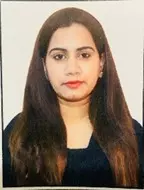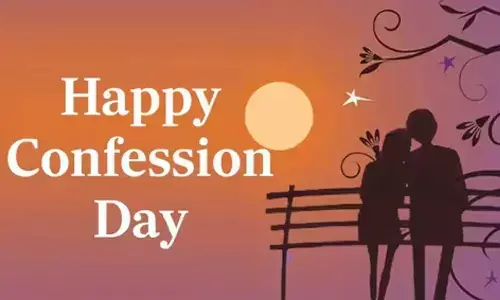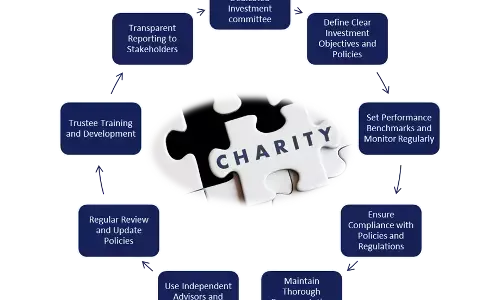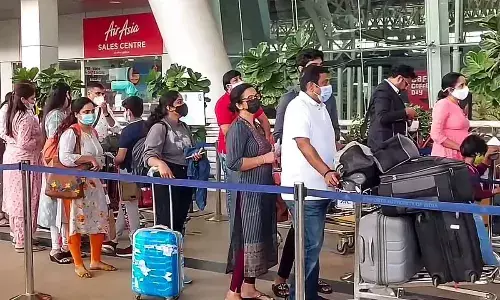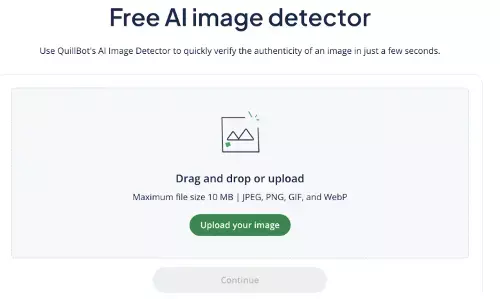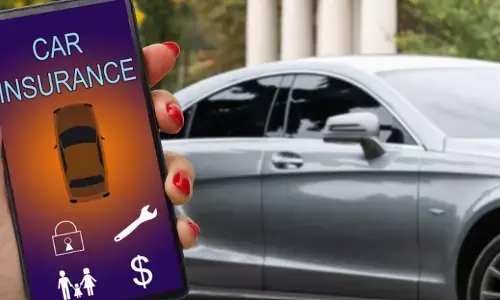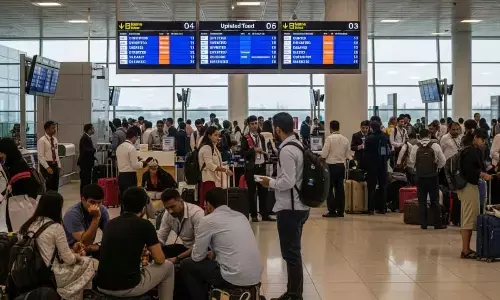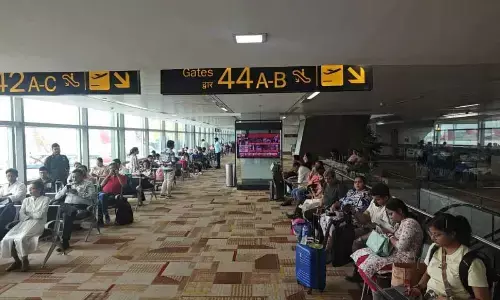CBI to quiz Arvind Kejriwal tomorrow
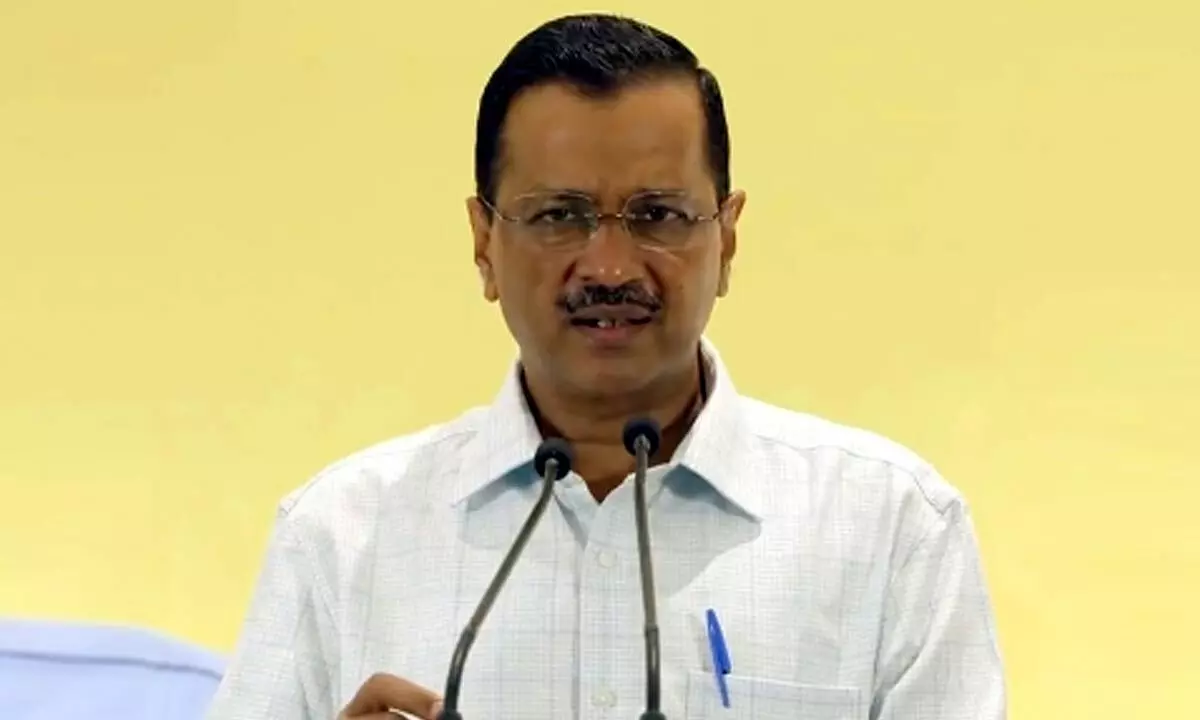
Delhi Chief Minister Arvind Kejriwal
The CBI on Friday summoned Delhi Chief Minister Arvind Kejriwal on April 16 in connection with the excise policy scam case, in which his former deputy Manish Sisodia was arrested last month.
New Delhi: The CBI on Friday summoned Delhi Chief Minister Arvind Kejriwal on April 16 in connection with the excise policy scam case, in which his former deputy Manish Sisodia was arrested last month. According to the notice issued by the CBI, Kejriwal has been called to appear at the agency headquarters at 11 AM on Sunday to answer queries of the investigating team as a witness in the case, officials said.
The AamAadmi Party (AAP) called it a conspiracy and confirmed that Kejriwal will appear before the agency on Sunday. There are allegations that money raised from tweaking the policy in favour of certain liquor dealers and the South lobby was suspected to be pumped in for election purposes by the AAP, which is under the probe as part of the money trail, agency sources said.
They said the process of policy formulation and influence of South lobby, besides changes in the draft stages, was in the know of the chief minister, which makes it necessary to put questions to him. Kejriwal may also be asked about an "untraceable" file containing details of the expert committee and public comments when the policy was at a nascent stage of formulation and referral of the issue to Group of Ministers (GoM) headed by Sisodia; besides his possible conversation with suspects in the case, they said. Sources have stated that the final role of Kejriwal, whether as a witness or an accused, will be decided while filing a charge sheet in the case after considering multiple factors. As of now, the chief minister is expected to answer questions as a witness, they said.
The CBI is bracing for an elaborate security arrangement around its headquarters and hence kept the questioning day on Sunday, when offices in the vicinity remain closed. The agency had adopted the same strategy when Sisodia was called at the agency headquarters, where he was grilled for eight hours before being taken into custody.
The allegations revolve around the Delhi government's excise policy for 2021-22, which is accused of granting licences to liquor traders who had allegedly paid bribes for it, a charge strongly refuted by the AAP. The policy was later scrapped. "It was further alleged that irregularities were committed, including modifications in excise policy, extending undue favours to the licensees, waiver/reduction in license fee, the extension of L-1 licence without approval, etc.," said a CBI spokesperson after the FIR was filed on August 17, 2022.
The CBI had filed its charge sheet against seven accused on November 25 last year, but it had kept against main FIR accused Sisodia open. The CBI has alleged in the charge sheet that the Delhi government's excise policy for 2021-22 was framed in a manner to promote cartelisation and monopoly at the wholesale level and set up a 12 per cent profit margin for wholesalers on an upfront payment of Rs 100 crore to Nair through Dinesh Arora, an alleged close associate of Sisodia.
In its further probe, the CBI had found that an expert committee under the then Excise Commissioner Ravi Dhawan was constituted to suggest changes in the policy. The committee submitted its report on the proposed changes on October 13, 2020. The report neither recommended a zonal licence system at the retail level nor privatisation at the wholesale level, which was not to the liking of Sisodia, the CBI has alleged. The agency alleged that the three-member GoM was constituted on February 5, 2021, to suggest changes in the excise policy. The GoM route was allegedly adopted to change the recommendations of the expert committee, officials said.
The recommendations of the expert committee were put in the public domain on December 31, 2020, inviting comments from the public. When the report, along with comments from the public and legal opinion, was put before the Council of Ministers, it was allegedly not taken up for discussion, and the file remained untraceable since then, the officials said. Soon after, a revised note was prepared without legal opinion based on which the GoMs was constituted under Sisodia. Satyendar Jain and Kailash Gehlot were members of the GoM, they said.
The GoM met in February 2021, but there was no discussion on the wholesale model for the liquor trade. In the first week of March, Nair met liquor traders and middlemen allegedly demanding commission for a favourable excise policy. During his attempts to get money from liquor traders, Nair, who was also handling communications for the AAP, allegedly met South lobby members.
The recovered chats showed that the South Lobby was allegedly involved in tweaking the excise policy in their favour, the officials claimed. The CBI also found that the first application of the Indospirit group, dominated by South Lobby, seeking licences raised some objections, after which the group submitted a second application, they said. The CBI alleged that immediately after, Sisodia directed excise department officials to grant the licence to the group on the basis of a second application, whereas there was no reason for him to know that another application was filed by it.

